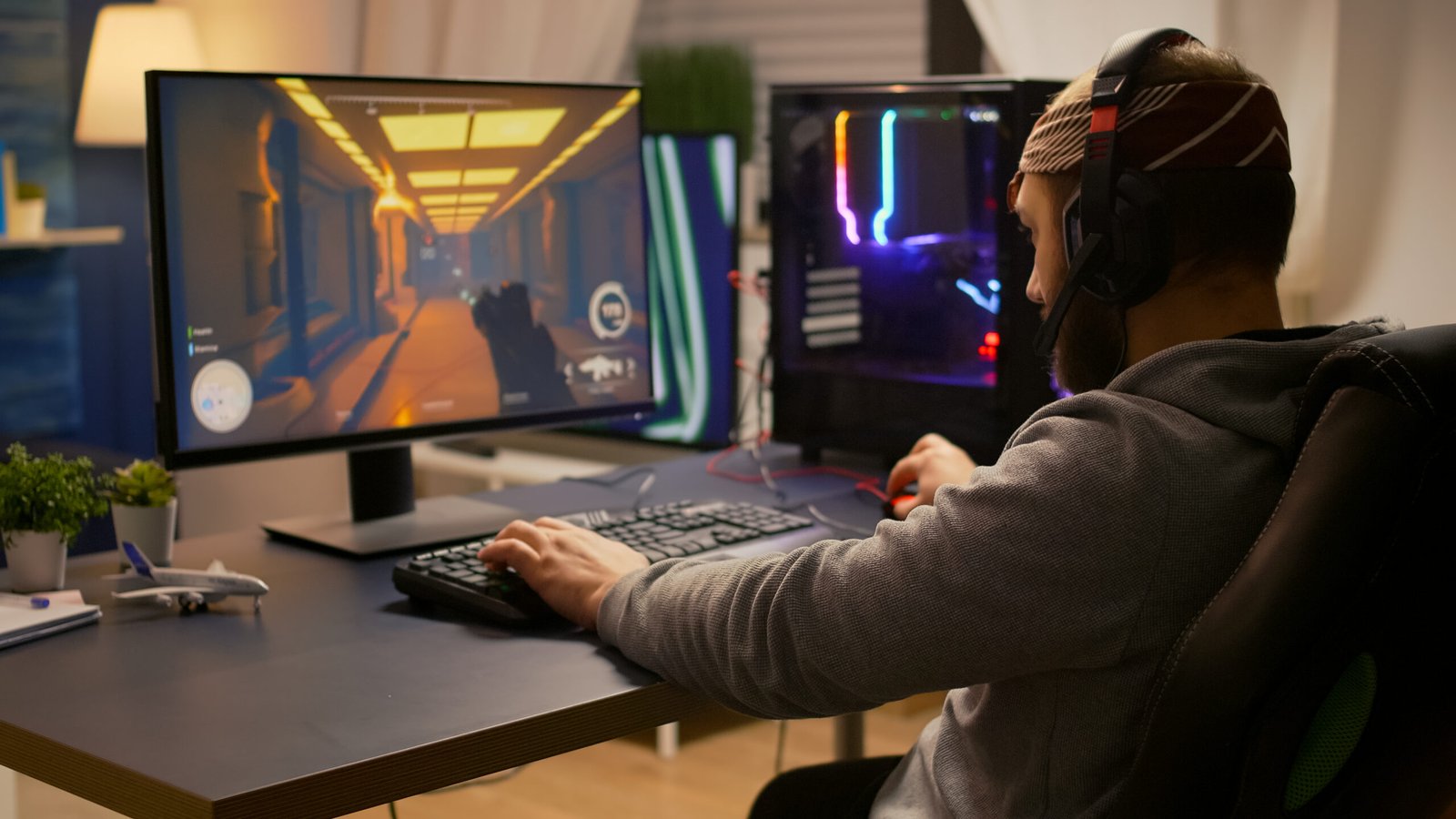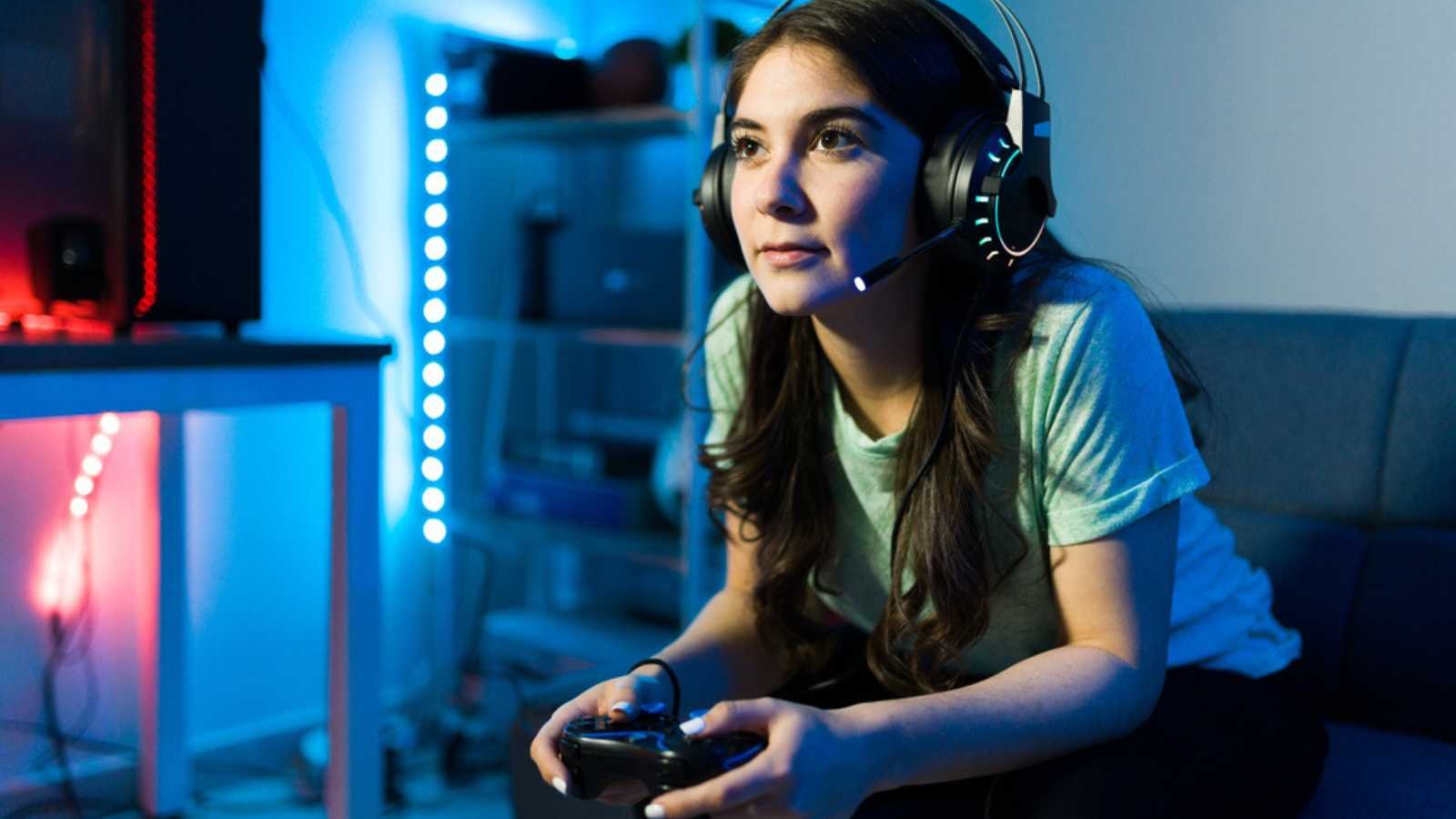Video game addiction is a growing concern in today’s digital world, affecting millions of individuals worldwide. With the increasing sophistication of video games, their ability to captivate and engage players has reached new heights. While gaming can be a fun and immersive activity, excessive gaming can lead to unhealthy behaviors and even addiction. Understanding the psychology behind video game addiction and knowing how to manage it is crucial for maintaining a healthy relationship with gaming.
In this article, we will explore the psychological factors that contribute to video game addiction, the signs to watch out for, and effective strategies for managing gaming habits.
1. What Is Video Game Addiction?
Video game addiction, also known as gaming disorder, is a condition where individuals compulsively play video games to the extent that it interferes with other aspects of their lives. While gaming can be a recreational hobby, addiction occurs when playing games becomes all-consuming and begins to impact an individual’s physical, social, and emotional well-being.
The World Health Organization (WHO) officially recognized gaming disorder as a mental health condition in 2018. This recognition has brought increased attention to the potential risks of excessive gaming and the need for intervention strategies.
2. Psychological Factors Behind Video Game Addiction
Several psychological factors contribute to the development of video game addiction. Understanding these factors can shed light on why some people are more susceptible to gaming disorder than others.
- Escapism: One of the primary reasons people turn to video games is to escape from the stresses and pressures of everyday life. Video games offer a temporary retreat, providing an immersive environment where players can forget about real-world problems. For those facing difficulties in their personal lives, gaming may become a coping mechanism.
- Reward System and Dopamine: Video games are designed to be highly engaging, often utilizing a reward-based system that triggers the release of dopamine, the brain’s “feel-good” neurotransmitter. Achievements, leveling up, and unlocking rewards can create a sense of pleasure, reinforcing the desire to keep playing. This cycle of reward and pleasure can make it difficult for players to stop, especially if they are seeking the euphoric feelings that gaming provides.
- Social Interaction and Community: Many modern games offer online multiplayer experiences that foster social connections. Players can join guilds, chat with friends, and compete against others in real time. For some individuals, the social aspect of gaming becomes the primary source of interaction, leading to isolation from the real world. The sense of belonging and validation from in-game achievements or online status can create a strong attachment to gaming.

- Immersion and Narrative: Story-driven games with deep plots and character development can draw players into their fictional worlds. The desire to continue the story or complete a character’s journey can encourage players to spend excessive hours gaming. The immersive experience that games offer can make it difficult for players to disengage, particularly when they become emotionally invested in the narrative.
3. Signs of Video Game Addiction
Recognizing the signs of video game addiction early is crucial in preventing it from negatively affecting one’s life. Some common indicators include:
- Neglecting Responsibilities: An individual may begin neglecting daily responsibilities, such as work, school, or household chores, in favor of gaming. They may prioritize gaming sessions over important tasks or commitments.
- Loss of Interest in Other Activities: A person addicted to video games may lose interest in activities they once enjoyed, such as socializing, exercising, or pursuing hobbies outside of gaming. Gaming becomes the primary source of entertainment and satisfaction.
- Time Distortion: Individuals with video game addiction often lose track of time while gaming, playing for hours without realizing how much time has passed. This can lead to disruptions in sleep patterns, with players staying up late or gaming into the early morning hours.
- Emotional Distress: Video game addicts may experience emotional distress when they are unable to play, such as anxiety, irritability, or frustration. These feelings are often triggered by the desire to continue playing or by the interruption of gaming time.
- Decline in Social Relationships: Gaming addiction can lead to isolation, with individuals withdrawing from family and friends. Online gaming communities may replace real-world interactions, leading to weakened personal relationships and social withdrawal.
4. How to Manage Video Game Addiction
While video game addiction can be challenging, it is possible to manage and overcome it with the right strategies. Here are some effective approaches to maintaining a healthy gaming balance:
4.1. Set Clear Boundaries
One of the most important steps in managing video game addiction is to set clear boundaries around gaming time. This can include:
- Limiting Play Time: Set specific time limits on how long you can play each day or week. Use timers or alarms to remind yourself when it’s time to stop playing.
- Scheduled Breaks: Take regular breaks during gaming sessions to avoid excessive screen time. A 10-15 minute break every hour can help reduce strain on your eyes and give you a chance to step away from the game.
4.2. Focus on Real-World Activities
To break the cycle of addiction, it’s important to re-engage with real-world activities and hobbies. Consider:
- Pursuing Other Hobbies: Find activities that you enjoy outside of gaming, such as reading, exercising, or learning a new skill. Diversifying your interests can reduce the urge to game excessively.
- Socializing in Person: Strengthen your relationships with friends and family by spending time with them in real life. Engaging in face-to-face conversations or group activities can replace the social validation found in gaming.
4.3. Seek Professional Help
If you find that your gaming habits are difficult to control and are affecting your mental health or well-being, seeking professional help may be necessary. Therapists or counselors trained in behavioral addictions can help you:
- Identify the root causes of your gaming behavior.
- Develop coping strategies for stress and anxiety without resorting to gaming.
- Implement cognitive-behavioral therapy (CBT) techniques to change unhealthy gaming patterns.
4.4. Practice Mindfulness and Stress Management
Since many individuals turn to video games as a form of stress relief, practicing mindfulness techniques can help manage stress without gaming. Techniques such as meditation, deep breathing, or yoga can help you relax and stay grounded in the present moment.
5. Conclusion
Video game addiction is a complex issue influenced by a variety of psychological factors. While gaming is an enjoyable and immersive experience, it is important to recognize when it starts to interfere with other aspects of life. By understanding the psychology behind gaming addiction and taking proactive steps to manage it, individuals can maintain a healthy relationship with video games while still enjoying all the benefits they have to offer. Establishing boundaries, engaging in real-world activities, seeking professional help, and practicing mindfulness are all effective strategies for managing video game addiction and ensuring that gaming remains a fun and balanced part of life.











